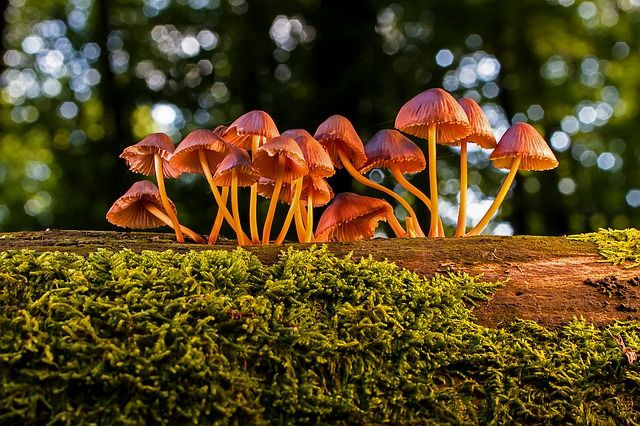Oregon Becomes First State To Legalize Magic Mushroom Therapy, Decriminalize Possession Of Hard Drugs
KEY POINTS
- Oregon has legalized magic mushroom therapy
- Possession of small quantities of hard drugs will attract a fine of $100
- The goal is to divert people from prisons and allow more access to treatment
Oregon has become the first state in the United States to allow magic mushroom therapy and decriminalize possession of small amounts of hard drugs, such as heroin, cocaine, and LSD.
The mushroom bill, known as measure 109, allows trained facilitators to administer psilocybin, the psychedelic compound found in mushrooms, as a mental health treatment intervention. The facilitators would guide patients through trips at licensed centers, the New York Post reported.
Regulatory information concerning how to qualify as a trained facilitator will be outlined in the next two years. The bill was reportedly passed with more than 56% support on Nov. 3.
Measure 110 reclassifies hard drug possession as a civil violation similar to a traffic offense that entails a $100 fine, with the goal being the funding of treatment for addiction and other drug-related harm reductions.
The measure received backing from criminal justice reform groups and is targeted at diverting people from prisons by treating possession as a citation while allowing for more access to treatment and recovery programs.
People caught with "user-amounts" of drugs may also get a waiver on the fine by completing a health assessment where they would be connected with services for treatment and recovery.
However, there is some resistance to the legislation. Kevin Barton, the Washington County District Attorney, told KOIN News, “Measure 110 is an idea that on the surface might sound appealing or compelling, but when you look into it, it’s a very dangerous measure.”
Though he agrees the current system is far from perfect, he claims that making treatment voluntary should not be the approach to take.
Voters in New Jersey and Arizona also passed state ballot measures concerning recreational cannabis legalization, The Guardian reported.
The states have joined the District of Columbia and other states that have already legalized the use of cannabis among adults.
The Arizona measure allows for the possession of up to an ounce of marijuana for adults and sets a licensing system for retail sales. Medical marijuana dispensaries are already in operation.
The cannabis measures are also geared towards addressing the effects of the war on drugs with laws that have adversely affected certain races in terms of arrests and prison time. Arizona’s law will allow people with marijuana-related convictions to petition the courts to have their records cleared.






















